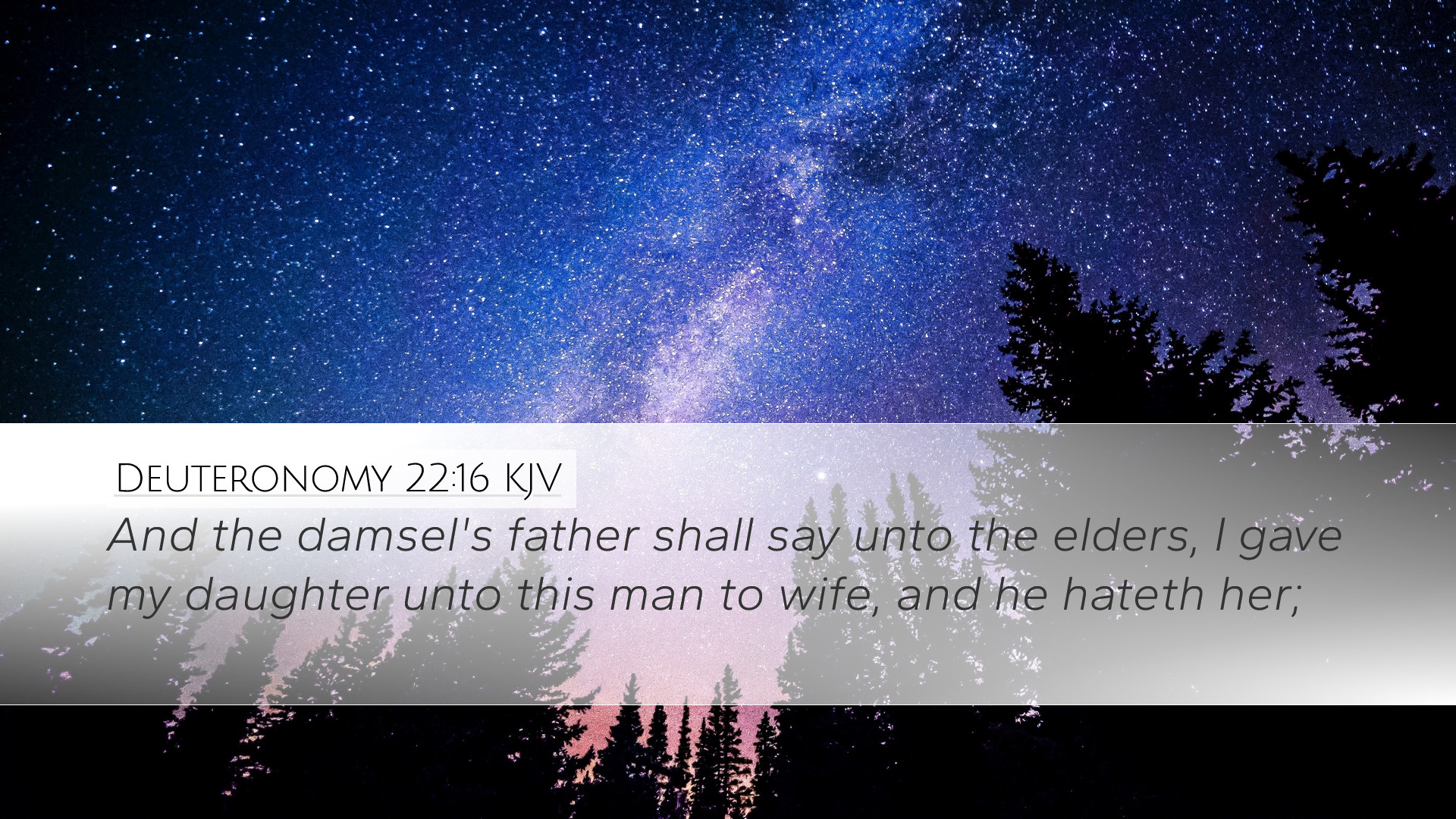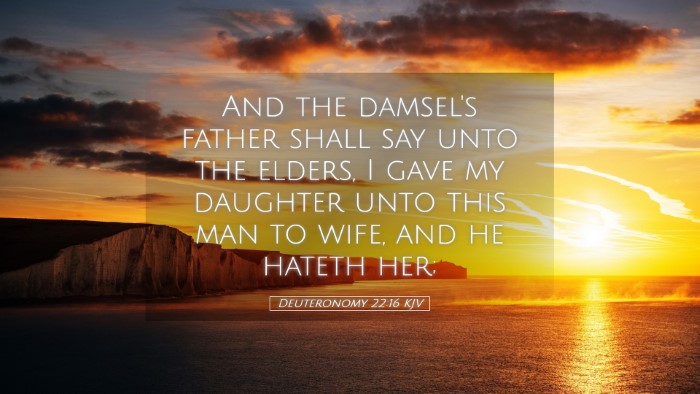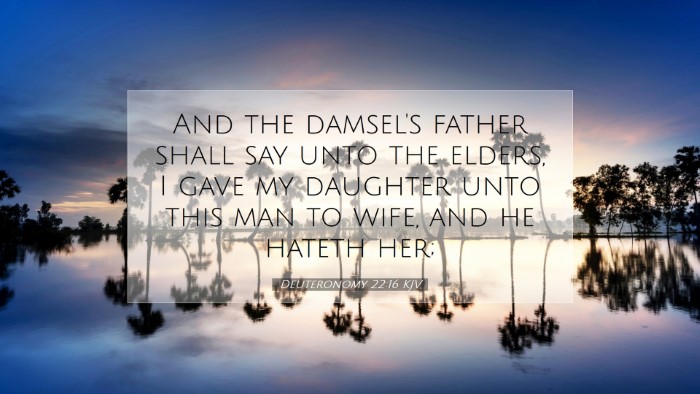Commentary on Deuteronomy 22:16
Biblical Text: "And the damsel's father shall say unto the elders, I gave my daughter unto this man to wife, and he hated her;" (KJV)
Introduction
This verse is part of a larger legislative section in the book of Deuteronomy, addressing issues of marital relations, honor, and the protection of women. In this commentary, we will explore the implications of this verse as understood through various public domain commentaries, noting their theological insights, cultural context, and practical applications.
Contextual Overview
Deuteronomy is essentially a restatement of the Law given to Israel, presented in a covenant renewal context. Moses, addressing the Israelites before they enter the Promised Land, emphasizes the importance of adhering to God’s laws in their societal and personal dealings.
Insights from Matthew Henry
Matthew Henry emphasizes the significance of family honor and the societal implications of a daughter's marital status. He notes that the father’s role in this verse reflects the patriarchal structure of ancient Israelite society. The father's statement, "I gave my daughter unto this man to wife," underscores his authority and responsibility over his daughter’s well-being.
Henry discusses the gravity of a husband's hatred towards his wife, indicating that such animosity could arise from various reasons, including jealousy or another perceived shortcoming. Importantly, he stresses the moral obligation to maintain the sanctity of marriage, urging believers to reflect on the consequences of marital conflict, especially in a communal context.
Reflections from Albert Barnes
Albert Barnes provides a thorough examination of the legal ramifications embedded in this verse. He elaborates on the intention behind the laws concerning marriage and divorce, noting that the assertion of the daughter's father holds much weight in court proceedings. Barnes articulates that the father’s claim is aimed at not only defending his daughter’s honor but also at ensuring justice prevails in cases of marital discord.
Furthermore, Barnes points out the cultural practice of betrothal and marriage at the time, highlighting that a daughter’s marriage was not just a personal affair but a critical family and community issue. He underscores how the honor of the family is intertwined with the woman's marital experience, emphasizing the responsibility of men not only to care for their wives but also to respect their standing within the community.
Analyses by Adam Clarke
Adam Clarke provides a nuanced perspective on this verse by examining its literary structure and rhetorical implications. He notes that the father’s declaration serves not just as a statement of facts but as a formal complaint, bringing attention to the violated rights of his daughter. Clarke stresses that this scenario illustrates the tension that can arise in marital relationships and through the lens of divine law, aiming to protect individuals from injustice.
Clarke also highlights the importance of community involvement in resolving marital disputes. The elders’ role as arbiters reflects God’s design for societal governance, melding individual rights with communal responsibility. He emphasizes that these laws were put in place to foster a society that upholds justice and righteousness.
Theological Implications
From these insights, several theological implications arise:
- The Nature of God’s Law: The laws surrounding marriage reflect God’s concern for human relationships and societal structures. They call for mutual respect and protect the vulnerable, particularly women in a patriarchal society.
- The Role of Community: The involvement of the elders highlights the collective responsibility of the community to uphold justice and righteousness, demonstrating that ethical living is a communal affair.
- Honor and Shame Culture: This passage reflects the cultural dynamics of honor and shame, encouraging contemporary readers to consider how societal expectations can influence personal behavior and visa versa.
Practical Applications
For pastors, students, and theologians, several practical applications can be drawn from Deuteronomy 22:16:
- Promotion of Healthy Marriages: Emphasizing the necessity of mutual respect and love in marital relationships, while actively engaging in counseling and discussions that foster healthy marriages.
- Advocacy Against Injustice: Encouraging active advocacy against any form of abuse or mistreatment within marriage, aligning with the biblical mandate to uphold justice.
- Community Support Mechanisms: Establishing structures within the church community that support individuals in conflict and promote restoration rather than condemnation.
Conclusion
Deuteronomy 22:16 serves not only as a regulation within the ancient context of Israel but also as a timeless reminder of the principles of justice, honor, and care that should govern human relationships. The collective insights from Matthew Henry, Albert Barnes, and Adam Clarke enrich our understanding of this verse, emphasizing its relevance across ages and cultures. As we continue to explore the depths of Scripture, may we be ever more attentive to the implications of our relational ethics and the divine intent behind God’s laws.


